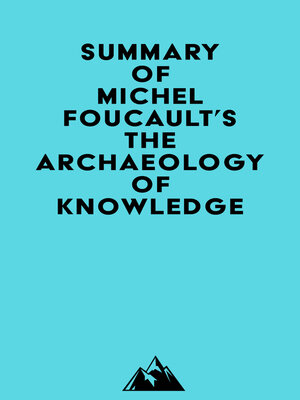
Sign up to save your library
With an OverDrive account, you can save your favorite libraries for at-a-glance information about availability. Find out more about OverDrive accounts.
Find this title in Libby, the library reading app by OverDrive.



Search for a digital library with this title
Title found at these libraries:
| Loading... |
Please note: This is a companion version & not the original book. Sample Book Insights: #1 The tools of history analysis are partly inherited and partly of their own making: models of economic growth, quantitative analysis of market movements, accounts of demographic expansion and contraction, the study of climate and its long-term changes, and so on. #2 The history of thought, the history of science, the history of philosophy, and the history of literature have all turned to the study of interruption. They have begun to examine the incidence of ruptures and discontinuities beneath the great continuities of thought. #3 The history of thought, of knowledge, and of philosophy seems to be moving toward more and more discontinuities, while history itself is moving away from events and toward stable structures. But we must not be fooled by these appearances. #4 The same problems are being posed in either case, but they have provoked opposite effects on the surface. History has altered its position in relation to the document: it has taken as its primary task not the interpretation of the document, nor the attempt to decide whether it is telling the truth or what its expressive value is, but to work on it from within and to develop it.






